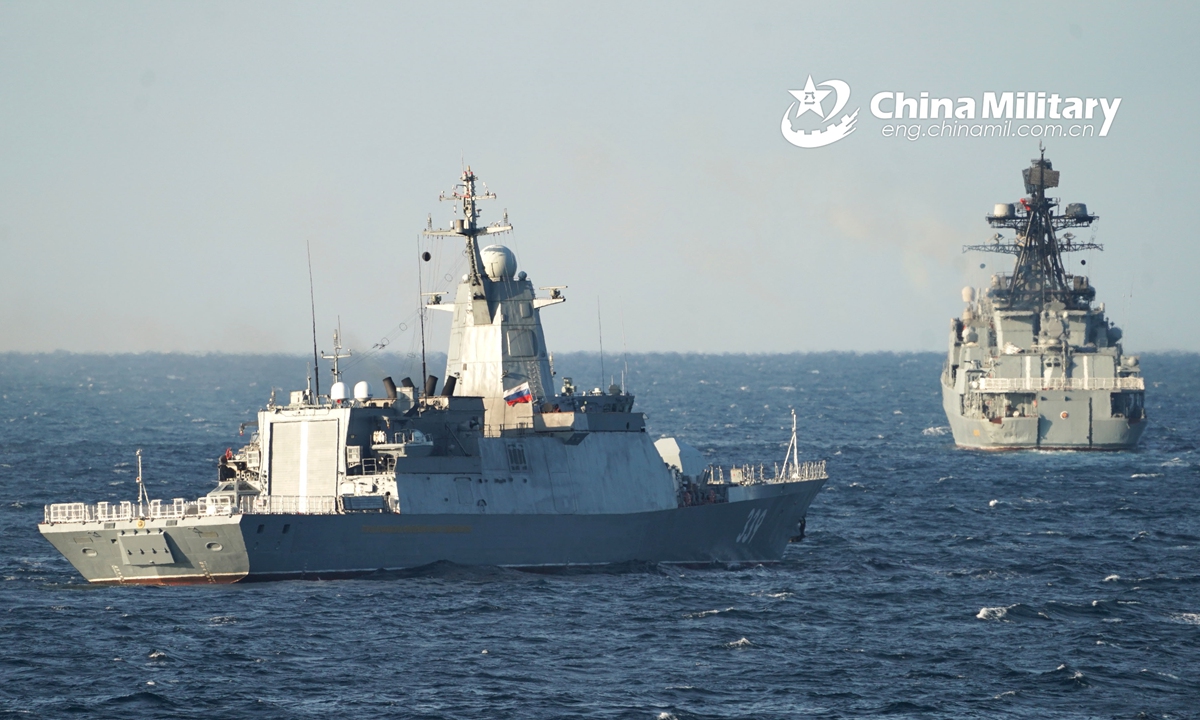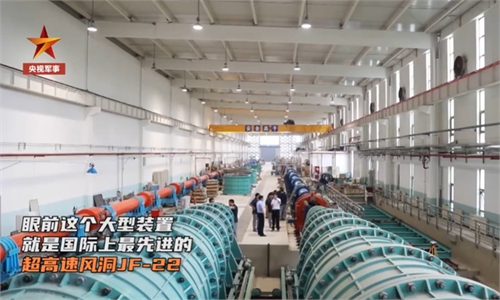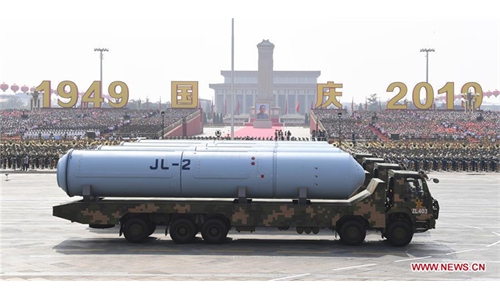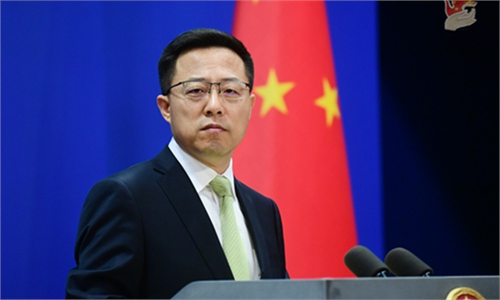World could maintain peace if US stops cornering China, Russia: Global Times editorial

Chinese and Russian warships transit simulated mined sea area during the naval exercise Joint Sea-2021 on the morning of October 15. The China-Russia joint naval exercise kicked off in waters near Russia's Peter the Great Bay on the afternoon of October 14, which focused on such training subjects as communications, mine countermeasures, air defense, live-fire shooting at maritime targets, joint maneuvering and joint anti-submarine missions.Photo:Xinhua
Various US officials have accused China of developing "hypersonic missile" technology, such as the secretary of defense, US envoy to the UN-sponsored Conference on Disarmament in Geneva, White House officials, and State Department spokesperson. But the Chinese Foreign Ministry said the so-called "hypersonic missile" test in some Western media's reports was actually "a routine test of spacecraft to verify technology of the craft's reusability."China is not on par with the US in terms of strategic nuclear power. The weapons the two countries have are not of equal number: The nuclear warheads of both sides are not even close on scale. On the other hand, Washington has been aggressively building up its defense system since its "Star Wars" program. It has increased the deployment and connectivity of its facilities aimed at China and Russia. But facing these two great powers, there will be endless loopholes in the "absolute security" the US pursues.
The sense of crisis Washington has experienced recently is caused by hypersonic weapon technology because the current US missile defense system will not be able to deal with such a revolutionary technology. This means Washington's defense system may become useless. The US fears that the nuclear power pattern between major powers might change once China and Russia possess this new missile technology. So the US has been keeping a close eye on any Chinese move that might be related to the technology.
However, despite the US' strong capability of global launch detection, it cannot accurately monitor and judge the technical parameters of every Chinese launch, and it is even more difficult to judge the nature of those launches. Its accusation that a specific Chinese launch was a missile test was largely a "wild guess," and would be exaggerated to accommodate its own domestic political and national strategic needs.
US State Department spokesperson Ned Price said on Tuesday that China has launched 250 ballistic missiles between January and September. His figure is highly suspect. The US' extensive history of politicizing the use of "intelligence," in light of its far-flung claims using "washing powder" and its recent missile attack on a civilian family in Afghanistan, in particular, reinforces the suspicion toward its accusation against China.
At a time when globalization has accelerated the technological convergence of great powers, it is surprising that the US remains stubbornly in pursuit of a power advantage that can completely overwhelm China and Russia. Isn't it obvious that US security needs to be achieved by respecting other great powers and preventing sharp confrontation? But what the US is doing is trying to force China and Russia to submit by pulling its allies and implementing a new iteration of military technology.
The concept of hypersonic weapons was first proposed by the US in the 1980s. Apart from the fact that Beijing has denied that the launch two months ago had anything to do with such new weapon, it doesn't matter whether it was a hypersonic weapon test at all, as China's ability to master the technology is assured. As long as the US continues to bully China strategically, China will surely produce more advanced weapons in the future.
Military proximity between China and Russia is inevitable, and neither the US nor the West has the right to judge it. Chinese and Russian vessels have just jointly sailed through the Tsugaru Strait between Japan's Honshu and Hokkaido islands. Considering what the US and its allies are doing, military cooperation between China and Russia is restrained enough. The two countries are not aligned with each other. And each joint exercise has been trying to avoid any perception of its target. The joint actions of China and Russia are defensive in nature. We are not a challenger to peace and stability.
The actions and words of the US and its allies are explicit. AUKUS, a trilateral security partnership between the US, UK, and Australia, for example, has just been established. It poses a real and serious challenge to peace in the Asia-Pacific region, and would result in nuclear proliferation that could be very destructive. Imagine how Washington would react if Beijing and Moscow helped a rival country of the US develop a nuclear submarine.
In short, the US should stop exerting pressure on China and Russia. It needs to restructure its security concept and live in peace with China and Russia. As long as Washington does not incite or create strategic confrontation between major powers, the world will be peaceful.



